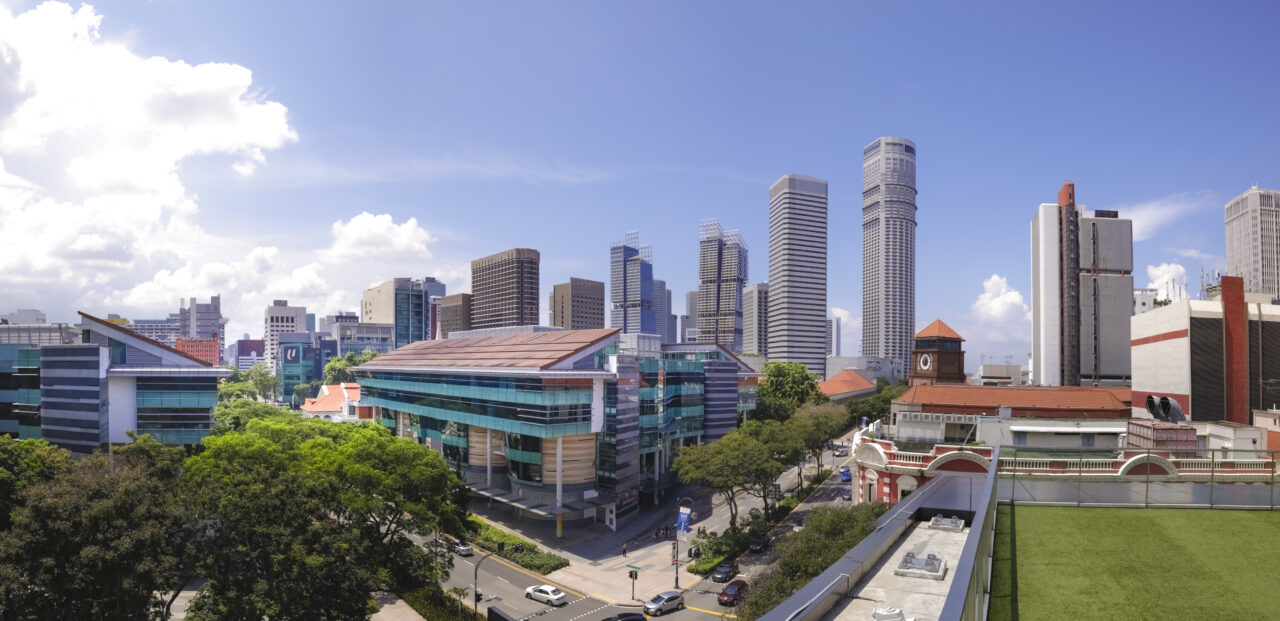Imagine standing in the heart of Singapore’s Central Business District (CBD), surrounded by sleek skyscrapers that stretch towards the sky, symbolizing the city’s economic power and modernity. The hum of activity is unmistakable—financial analysts, investment bankers, and fintech entrepreneurs all rushing between meetings, phone calls, and deal negotiations. A few decades ago, Singapore was a developing nation struggling to find economic footing. Today, it’s one of the world’s leading financial centres, often compared to London, New York, and Hong Kong. How did this small island nation transform itself into a global financial powerhouse, and what does the future hold for finance SG?
Singapore’s journey to becoming a financial hub is a story of ambition, adaptability, and strategic vision. It’s a place where the government, private sector, and international investors work in unison, making it a model for modern finance. In this article, we’ll explore Singapore’s financial landscape, the factors contributing to its success, and the trends shaping its future, backed by data and expert insights.
Overview of Singapore’s Financial Sector
Singapore’s financial sector plays a critical role in the country’s economy, contributing approximately 13.9% of the nation’s GDP in 2021, according to the Monetary Authority of Singapore (MAS). The diverse sector includes banking, insurance, wealth management, asset management, and a growing fintech industry. The city-state’s strategic location in Southeast Asia, coupled with its business-friendly regulatory environment, has attracted top financial institutions from around the globe.
As of 2022, Singapore was home to more than 200 banks, including major global players like JPMorgan, HSBC, and Citibank, alongside strong local banks such as DBS, UOB, and OCBC. These banks serve not only Singapore’s local market but also as regional headquarters, overseeing operations in Asia-Pacific. Singapore’s asset management industry also managed over SGD 4.7 trillion (USD 3.4 trillion) in assets in 2021, highlighting its role as a preferred destination for global investors.
The Foundations of Singapore’s Success as a Financial Hub
- Strategic Government Policies and Pro-Business Regulations
- Singapore’s financial sector growth is no accident. It has been supported by a proactive and business-friendly government that understands the importance of maintaining a stable, transparent regulatory framework. The Monetary Authority of Singapore (MAS), which functions as the central bank and financial regulator, is known for its balanced approach to regulation. MAS works closely with industry players to promote innovation while ensuring financial stability.
- The government has also introduced incentives to attract financial institutions and businesses, including tax breaks and grants. For instance, the Financial Sector Development Fund, managed by MAS, supports initiatives that enhance Singapore’s status as a global financial hub. According to a 2022 report by PwC, over 65% of multinational corporations surveyed cited Singapore’s regulatory environment as a primary reason for choosing it as a base for their regional headquarters.
- Skilled Workforce and Talent Development
- Singapore’s emphasis on education and talent development has been crucial to its financial sector. The government invests heavily in building a skilled workforce, focusing on finance, technology, and data analytics. In 2021, MAS launched the “Finance for Singapore” initiative to equip over 50,000 workers with future-ready skills in green finance, fintech, and digital banking by 2025.
- Moreover, Singapore’s universities are recognized for their finance and business programs, attracting local and international students. The National University of Singapore (NUS) and Singapore Management University (SMU) consistently rank among Asia’s top institutions for business education. With a young and dynamic talent pool, Singapore is well-positioned to adapt to the evolving demands of the financial industry.
- Geopolitical Stability and a Strong Legal System
- In a region marked by geopolitical uncertainty, Singapore has managed to maintain a high degree of stability, making it an attractive location for global businesses. Singapore ranks highly on global indices for the rule of law, with its legal system considered one of the most efficient and transparent in the world. The World Bank’s 2022 “Ease of Doing Business” report ranked Singapore 2nd globally due to its robust legal infrastructure, low corruption levels, and efficient judicial processes.
- Advancement in Financial Technology (Fintech)
- Singapore has rapidly emerged as a global leader in fintech, with the government and MAS playing a pivotal role in fostering innovation. According to KPMG’s 2021 Pulse of Fintech report, fintech investment in Singapore reached USD 3.94 billion, accounting for nearly half of all fintech investment in Southeast Asia. The city-state hosts the annual Singapore Fintech Festival, one of the largest events of its kind globally, attracting thousands of fintech companies, investors, and thought leaders.
- The regulatory environment in Singapore is also highly supportive of fintech innovation. The MAS has established a “sandbox” program, allowing fintech firms to test new technologies and business models under regulatory supervision. This has encouraged companies to experiment and scale solutions like digital payments, robo-advisory, and blockchain technology.
Key Sectors within Singapore’s Financial Landscape
- Banking and Digital Banking
- Singapore’s banking sector is among the most advanced in Asia. Local banks, particularly DBS, have been recognized globally for their digital transformation efforts. Euromoney named DBS the “World’s Best Digital Bank” in 2022, underscoring Singapore’s leadership in digital banking.
- In recent years, MAS has also issued digital banking licenses to encourage competition and innovation in the banking sector. This move has allowed non-traditional players like Grab and Sea Group to enter the market, which is expected to increase access to financial services for underserved populations.
- Wealth and Asset Management
- Singapore is often called the “Switzerland of Asia” due to its role as a wealth management hub. The city-state’s stability, low tax rates, and confidentiality laws have attracted high-net-worth individuals (HNWIs) worldwide. According to Knight Frank’s 2022 Wealth Report, Singapore saw a 10% increase in its population of ultra-high-net-worth individuals (UHNWIs) in 2021, largely driven by Asia’s rising wealth.
- According to MAS, Singapore’s asset management industry is also growing rapidly, with assets under management (AUM) reaching SGD 4.7 trillion (USD 3.4 trillion) in 2021. This growth is fueled by institutional investors, sovereign wealth funds, and family offices that see Singapore as a gateway to Asia’s high-growth markets.
- Green Finance and Sustainability Initiatives
- Singapore is positioning itself as a leader in green finance, aligning with global sustainability goals. MAS has launched several initiatives to promote sustainable finance, including the Green Finance Action Plan, encouraging financial institutions to adopt environmentally friendly practices. In 2022, MAS committed SGD 2 billion (USD 1.5 billion) to green investment programs to attract green finance and support Asia’s transition to a low-carbon future.
- As a result, Singapore is becoming a hub for green bonds, sustainability-linked loans, and ESG (Environmental, Social, Governance) investing. According to the Global Sustainable Investment Alliance, green finance investments in Singapore grew by 50% in 2021, reflecting strong demand from institutional and retail investors.
Challenges Facing Singapore’s Financial Sector
While Singapore’s financial sector is robust, it faces challenges in maintaining its competitive edge:
- Rising Competition – Other financial centres, such as Hong Kong, Shanghai, and Dubai, are also vying to attract global investment, putting pressure on Singapore to innovate continually.
- Talent Shortage – Although Singapore has a skilled workforce, the demand for specialized roles in areas like fintech, cybersecurity, and green finance has outpaced supply. This has led to increased competition for talent and rising wages.
- Regulatory Complexity – As financial products and services become more complex, so do the regulatory requirements. Balancing innovation with regulatory compliance is an ongoing challenge, especially in emerging fields like cryptocurrency and blockchain.
Conclusion: The Future of Finance in Singapore
Singapore’s journey from a small trading port to a global financial hub is a testament to the power of strategic planning, innovation, and adaptability. With a stable economy, progressive regulatory environment, and commitment to innovation, Singapore’s financial sector is well-positioned for the future. However, staying competitive will require continuous investment in talent, infrastructure, and technology and a proactive approach to emerging trends like green finance and digital banking.
As the world faces economic uncertainty and rapid technological change, Singapore’s ability to remain agile and forward-thinking will be crucial. By focusing on sustainable growth and adapting to new challenges, Singapore is poised to remain a key player in global finance for years to come, ensuring that the city-state continues to attract businesses, investors, and talent from around the world.



